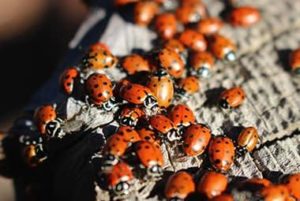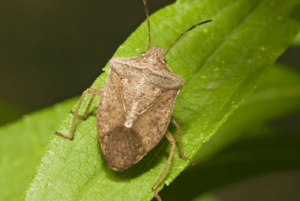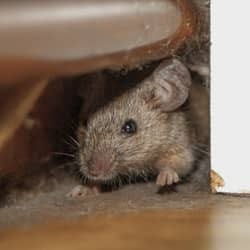We’ve talked in previous posts about pests that have come to the United States from other countries and then created problems for our ecosystems. Pests that may be only an inconvenience in their countries of origin can be devastating when they arrive in areas that do not have the proper predator balance for them. Unfortunately, we have seen another non-native species, the kudzu bug, rise up in the Southeast in the last five years, and it’s time for Tennessee homeowner to brace for impact.
Kudzu bugs are also known as lablab bugs and globular stink bugs. They arrived in Georgia in 2009 and spread through several counties that year. Now, in 2013, they can be found in most of the states in the Southeast, including Alabama, both Carolinas, Mississippi, Virginia, northern Florida, and Tennessee.
Like the brown marmorated stink bug, kudzu bugs have straw-like mouth parts, which they use to suck liquids out of plant stems. Based on their name, you might be inclined to call them beneficial since they do, in fact, eat kudzu and significantly hinder its growth. However, their second-favorite food is soybeans, which makes up an enormous part of the U.S. farming economy. In just a few short years, they have already demonstrated their ability to cause devastating damage to crops, and they are a huge point of concern for local entomologists and pest professionals alike.
Even if you’re not a farmer, kudzu bugs are likely to be a hindrance for you. Just like stink bugs, lady bugs, and boxelder bugs, adult kudzu bugs move indoors when the weather first starts to cool off, and they overwinter in attics and wall voids. Light-colored houses are more at risk for invasion (they have a particular affinity for white), and they are most likely to enter homes after sunning themselves on south or west walls on chilly fall days. They then emerge in the spring when the weather warms up to eat, mate, and lay their eggs. Unfortunately, overwintering pests are not blessed with spectacular senses of direction, and kudzu bugs can end up inside your home instead of leaving through the crack they used as an entrance. And, you guessed, just like the other bugs listed above, they emit a smelly, staining liquid when they are agitated or smashed that can be very problematic in a home.
I write about overwintering pests every year to try to warn as many homeowners as possible because we are now in the season when you need to take action to keep these pests out of your home. Check your weather stripping, ridge vents, and the holes around your utility entrances. Make sure to keep those well-sealed so you’re not presenting easy entrance points for pests. If you do not want to have a professional pest treatment, consider getting a hose attachment that will allow you to spray your home with very soapy water. This is a short-term treatment (since both sun and rain dissipate soap very quickly), but if you do it every few days, you may deter these bugs from sunning on your siding. If you do want a professional treatment, call Russell’s Pest Control before the weather turns truly cold. We can use a backpack sprayer to treat the outside of your home to make sure that our products get into the small cracks that the kudzu bugs, stink bugs, and lady bugs are most likely to find appealing.
Contact us if you’d like more information. We’ll keep you informed as we find out more about this new type of invader.
Kudzu Bugs: A New Pest In East Tennessee in Knoxville TN
Serving East Tennessee since 1971


